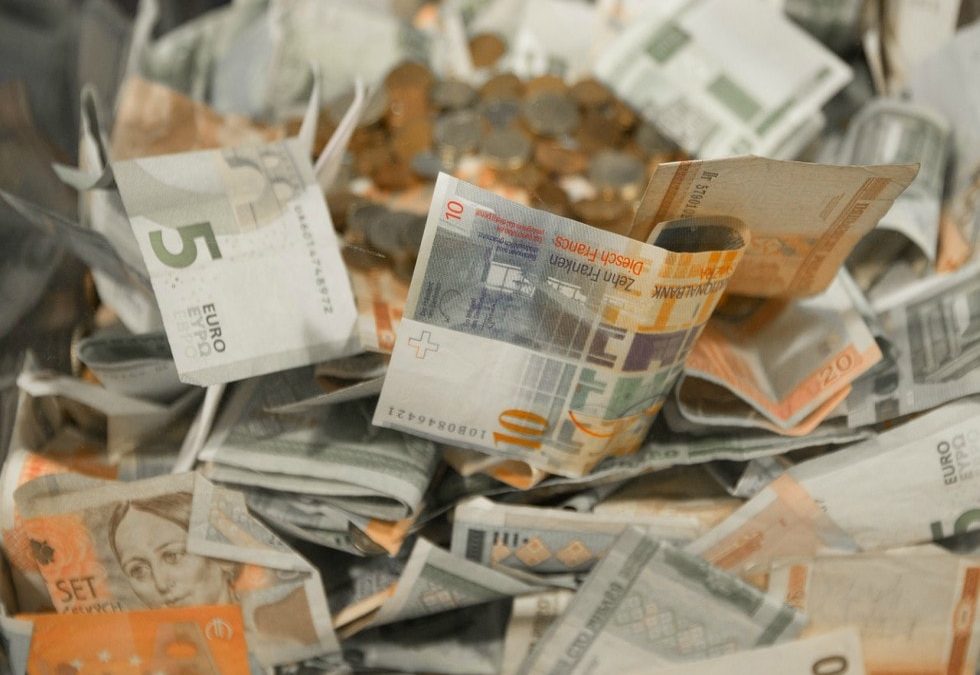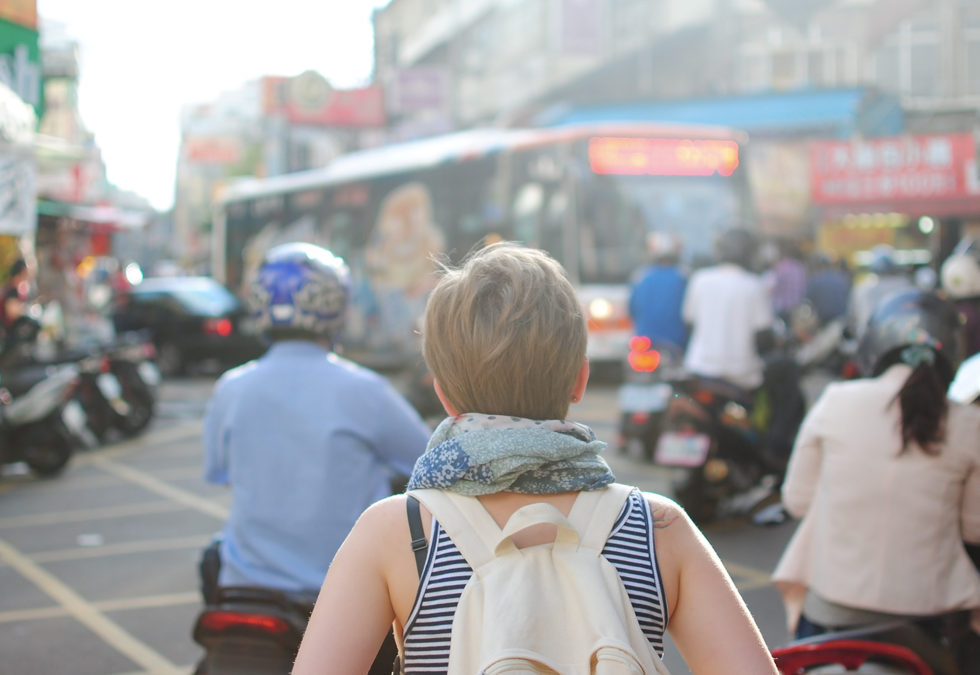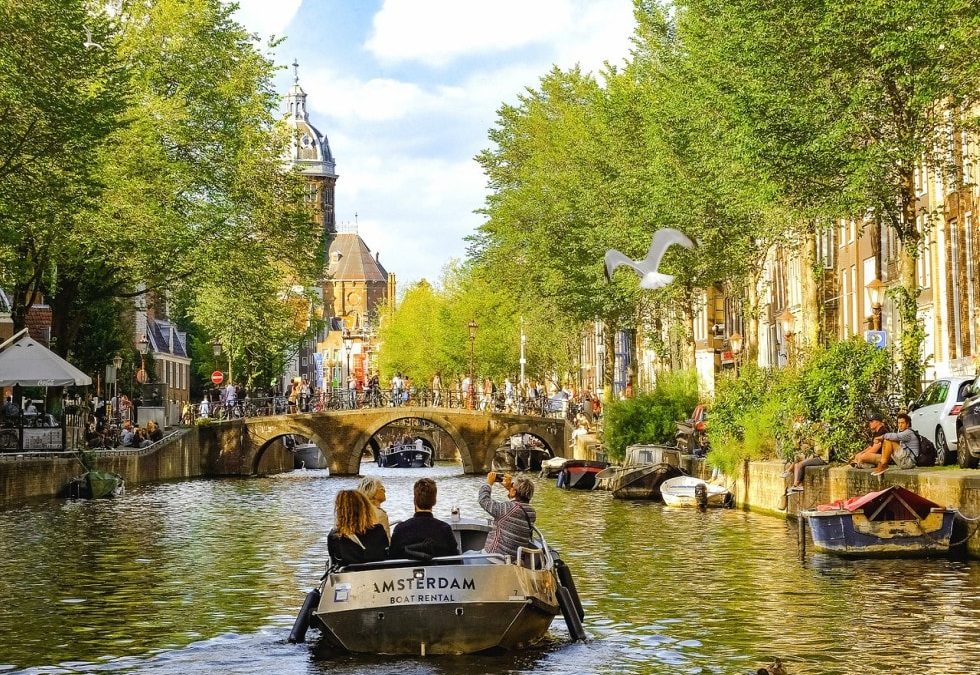
How to Effectively Avoid Tourist Scams and Rip-Offs
Getting scammed and ripped off are every traveler’s nightmare. Here are some USEFUL AND EFFECTIVE tips on how to avoid them!
I’m sure that it is every traveler’s wish to have a peaceful and uneventful visit to their holiday’s destination.
Sadly though, there are many sketchy people out there, lurking for every opportunities to take advantage of tourists with their devious practices of scams and rip-offs. And it can happen to all of us.
That’s why in this post I am going to provide you with some tips on how to avoid rip-offs and scams while traveling.
While it’s almost impossible to know when you will get scammed, it is more important for you to be aware of the situations where you run a risk of getting ripped off, and what you should do when these situations arise. Here you go!
How to Effectively Avoid Tourist Scams and Rip-Offs
To start with, let me try to sketch the settings and practices that the scammers usually employ to trick you. After that, I will explain what you should do in that particular situation.
Case #1: Money Changers

Beware of the money changers, especially at the airport. Not only that they often have unfavorable exchange rates, but they also can charge you a ridiculous amount of commission on top.
In some cities like Prague, for example, the money changers at the airport charge 5% commission of the exchanged amount. Simply ridiculous!
In addition, there are increasing numbers of tourists getting scammed on the streets with fake money, like this case in Prague where tourists get Belarusian Rubles, instead of Czech Koruna.
What to do:
#1 – Avoid exchanging money at the airport, and do it in the city instead. Guaranteed, you will get a much better rate than at the airport.
#2 – If you are unavoidably cash-pressed at the airport, for instance, to pay for the taxi, consider withdrawing cash from ATM instead. But make sure you research the cost first. FYI, I also provide this information in my previous city guide, like for Dubai and Abu Dhabi and Ho Chi Minh City.
#3 – NEVER exchanging money with a stranger on the street! Make sure you only exchange your money at a decent and honest money exchange places.
Get My Quick FREE Travel Checklist!
Subscribe now to get my quick FREE Travel Checklist.
I will also send you latest updates on travel tips, food and other travel stories from around the world!
Case #2: Airport Baggage Porters

Image courtesy of Budapest Airport
In most airports especially in Asia, you will recognize them as those guys standing at the baggage claim area, offering to help you carry your heavy luggage.
Some of those guys are indeed official porters from the airport, usually dressed in uniform, but some of them are not. In both cases, you still need to be careful and don’t be afraid to be a little assertive.
What to do:
#1 – Find an official porter dressed in uniform, and ask first what they charge.
#2 – If they insist to carry your luggage anyway before telling you what they charge, ask them to stop
#3 – Only ask them to help you, once you agree with what they charge. Otherwise, just politely reject their offer and walk away
#4 – Some major airports, like Singapore Changi Airport and London Heathrow Airport, offer an official porter service and allow you to book it in advance prior to your arrival. This way you avoid the risk of getting ripped off by an individual porter.
Case #3: Taxi

You must have heard already about the common taxi scams like the overcharged fare, broken meters or endlessly driving around longer than needed. In all of these cases, the taxi driver just tries to rip you off and let you pay more than what you should.
Don’t get me wrong. There are many honest taxi drivers out there. In fact, I have met the friendliest, coolest and most honest taxi drivers in cities like Athens, Madrid, and Helsinki.
Sadly, there are still many bad apples out there. Taking a taxi becomes increasingly a pain in the neck for many tourists nowadays, especially in cities where this problem is endemic like Prague, Paris, and Bangkok. And the worst of all, they also increasingly have a very bad service and rude towards customers.
What to do:
#1 – Before taking a taxi, always try to find out first how much a certain trip may cost. You can do this by asking your hotel’s concierge to give you a fair estimate of taxi cost and duration.
#2 – Once you get into a taxi, always ask the driver to run the meter. If they refuse or start bargaining with you, don’t be afraid to ask him to pull over and get out of the taxi immediately.
#3 – If you take a taxi from the airport to your hotel, only take an official airport taxi. And don’t forget to ask your hotel for a fair estimate of taxi cost and duration beforehand.
#4 – Avoid hailing a taxi nearby a major attraction place, as the driver will certainly try to force a markup on your fare. Try to walk further away outside the attraction place area, and grab a taxi from there
#5 – Instead of taking a taxi, take a ride-hailing service like Uber, Lyft or Grab. They are generally cheaper, more transparent, more convenient and much nicer than the taxi. Make sure to research if such ride-hailing service is available for the city you go to. For Uber, use this link to get €30 off for your first booking.
#6 – Download an offline Google Maps and track your taxi route. This way you avoid that the taxi driver taking the longest route to your destination.
BONUS TIP:
The above also applies to the “traditional” taxis like tuk-tuk and rickshaw that you can find in cities like Bangkok and New Delhi.

Although there is a meter available and the price is regulated by the government, the driver will NEVER want to use the meter, and always try to overcharge you. And the worst of all, they will try to take the longest route and force you to visit some tourist traps, because they earn commission from those places.
The key to avoiding rip-off here is to know the fair rate first, be assertive and not afraid to bargain. And while bargaining, don’t be afraid to walk away and find another driver.
Just to set your expectation while bargaining though: as a tourist, it’s almost impossible for you to get the local regulated fare, but at least you can try to get a price close to the regulated fare and avoid getting massively overcharged.
Case #4: Restaurants and Cafés

Another massive “tourist traps” is those restaurants and cafés located near or at an attraction place, like along La Rambla in Barcelona, or even along the beautiful beaches in Asia.
Recently my friends just got ripped off at a beach restaurant in Lombok, Indonesia. The restaurant has a beautiful view, and the personnel was nice and very welcoming.
However, when the bill came out, they were shocked to see the highly overcharged price. And the worst of all, it is a cash-only restaurant, and at that time they did not bring enough cash.
Well, it’s an annoying situation, isn’t it? And I’m sure that you don’t want to be in a similar situation either.
What to do:
#1 – Always ask for the menu. If there is no menu, or there is no price on the menu, then walk away
#2 – Make sure that you only order things off the menu. Check carefully the prices on the menu, and make a mental exercise to memorize it
#3 – Always ask whether you can pay with credit cards or only with cash
#4 – Go eat at large and well-known international chains, which always have their prices listed on the menu. You are less likely to get ripped off at a chain restaurant than at a local joint.
Case #5: Hotels

This may not occur often, but there are still few hotels out there that do not always play it straight when offering their Wifi or breakfast.
Many hotels offer free Wifi and breakfast nowadays, but some only provide this privilege only to their loyal customers. That’s why sometimes you still have to pay, and if you’re not careful, it can cost you a lot of money.
What to do:
#1 – Always ask during the check-in whether Wifi and breakfast are included in your room rate. And if not, what would it cost per day
#2 – Try to ask the hotel politely if they can give you a free Wifi/breakfast, with an argument that you are a loyal customer, and that you would appreciate if they reward you for that (never hurt to ask, right?)
#3 – Be extremely careful when you are about to connect to the hotel’s Wifi network. Some hotels often have several Wifi plans. Make sure you select one that you want – a free Wifi connection is typically slower than a paid one though.
Case #6: Major Attraction Places

This often occurs at some major, busy attraction places. Suddenly a well-spoken guy randomly approaches you, offering you a guided tour, showing you the places usually not opened for public, and skipping the lines at the ticket counter.
Then at the end of the tour, he’ll charge you with an extremely high amount, and if you refuse to pay, he will make a scene and threaten to report you to the police.
What to do:
#1 – Always buy your tickets online for major attractions. Check if there is a free guided tour available and the time schedule
#2 – When somebody randomly approaches you to offer a guided tour, reject him politely. Don’t be afraid to do so, especially if you know that there is a free guided tour available.
Case #7 – Busy Streets or Markets

Fake Monks – Image courtesy of The Sun
This often occurs on some busy streets or traditional markets. A friendly, innocent-looking child suddenly approaches you and insists to put a “friendship” bracelet around your wrist.
Or some peaceful-looking Buddhist monks hold out a beaded Buddhist bracelet or gold-colored medallion featuring a Buddhist saying.
Both scams have the same tactics. Once you accept the giveaways, they will demand money or ask for a donation. And if you refuse to give them money, they will make a scene and even start yelling at you.
What to do:
#1 – Do not accept free gifts from anyone on the streets, unless there is a legitimate reason for it
#2 – NEVER allow anyone to put anything on your body. Just reject them politely and walk away.
——–
So there you go! I hope that this post could help you travel more safely and know what you need to do when these situations arise.
Just one last thing: I am interested to know if there are any other rip-offs and scams you have encountered that are not mentioned here. Please leave me a comment below, or send me a message.
Do you like this post and want to receive some more awesome tips regularly? Please make sure that you subscribe to my email newsletter. And also check out my other blog posts for many more helpful tips for traveling. See you in the next blog post and until we Greet again!







